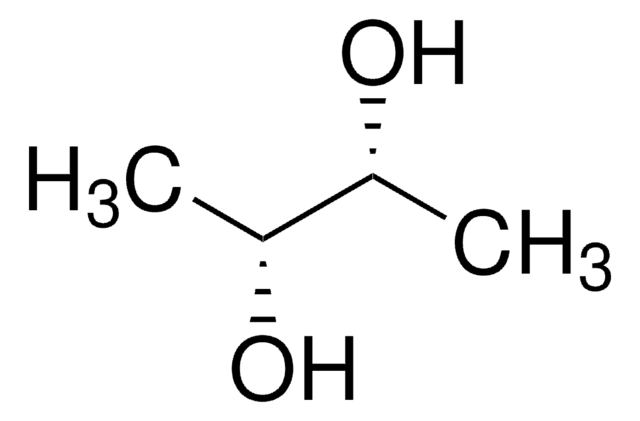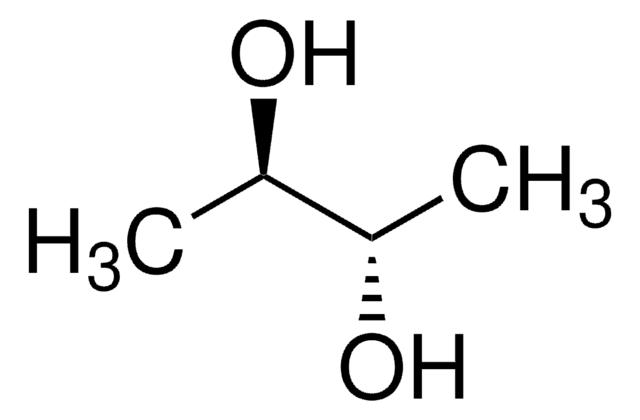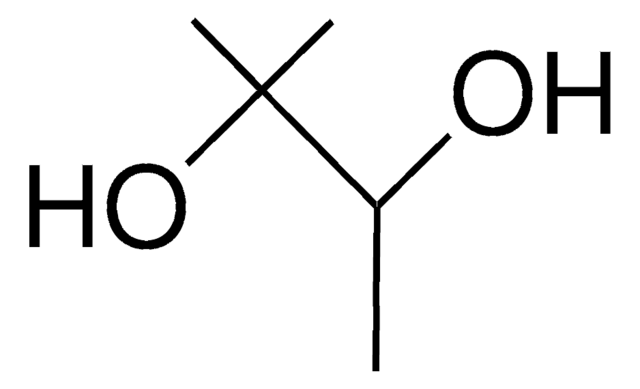B84904
2,3-Butanediol
98%
Synonym(e):
2,3-Butylenglykol
About This Item
Empfohlene Produkte
Assay
98%
Form
liquid
Brechungsindex
n20/D 1.433 (lit.)
bp
183-184 °C (lit.)
mp (Schmelzpunkt)
25 °C (lit.)
Dichte
1.002 g/mL at 20 °C (lit.)
SMILES String
CC(O)C(C)O
InChI
1S/C4H10O2/c1-3(5)4(2)6/h3-6H,1-2H3
InChIKey
OWBTYPJTUOEWEK-UHFFFAOYSA-N
Suchen Sie nach ähnlichen Produkten? Aufrufen Leitfaden zum Produktvergleich
Verwandte Kategorien
Allgemeine Beschreibung
Anwendung
- CRISPR/Cas9 in Pichia pastoris: 2,3-Butanediol (BDO) is used in the construction of P. pastoris cell factories as a representative example to demonstrate the procedures for integrating multiple heterologous genes using the CRISPR-based multiplex genome integration toolkit (Gao et al., 2024).
- Antifungal activity in sorghum: 2,3-butanediol, a metabolite of A. oryzae YRA3, can induce the production of root exudates which modulate the growth of the rhizospheric fungi and bacteria (Rashad et al., 2023).
Lagerklassenschlüssel
10 - Combustible liquids
WGK
WGK 1
Flammpunkt (°F)
185.0 °F - closed cup
Flammpunkt (°C)
85 °C - closed cup
Persönliche Schutzausrüstung
Eyeshields, Gloves, type N95 (US)
Analysenzertifikate (COA)
Suchen Sie nach Analysenzertifikate (COA), indem Sie die Lot-/Chargennummer des Produkts eingeben. Lot- und Chargennummern sind auf dem Produktetikett hinter den Wörtern ‘Lot’ oder ‘Batch’ (Lot oder Charge) zu finden.
Besitzen Sie dieses Produkt bereits?
In der Dokumentenbibliothek finden Sie die Dokumentation zu den Produkten, die Sie kürzlich erworben haben.
Kunden haben sich ebenfalls angesehen
Unser Team von Wissenschaftlern verfügt über Erfahrung in allen Forschungsbereichen einschließlich Life Science, Materialwissenschaften, chemischer Synthese, Chromatographie, Analytik und vielen mehr..
Setzen Sie sich mit dem technischen Dienst in Verbindung.










